‘Never Give Up and Believe in Yourself’
The darkest moment came when his body yearned to shut down, but his mind insisted that he move on. Thomas Washington was rushed to Auburn Medical Center with blood clots in his lungs and legs, and the thought of not making it through the night crystallized. As the 55-year-old Federal Way resident sensed he was fading into unconsciousness, he figured his only hope was to resist the urge to close his eyes.
If I close my eyes, I’m not going to wake up again, and I’m not done. My three kids—what’s going to happen to my kids when I go? I can’t leave that a question mark.
Washington’s eyes were still open when he arrived at the hospital, but the staff there informed him that his worst fears were probable. His chances of surviving the night weren’t good. In fact, Auburn Valley didn’t have the staff to treat such a grave situation. Washington had to be transported again, this time to Harborview Medical Center in Seattle.
And Auburn staff said his situation was so dire that he might not even survive the ride.
Again, his thoughts turned to the three children—two teenage sons and an infant daughter—of whom he gained custody after a divorce and a failed relationship. Illnesses had kept him out of work for more than two years, and as rent and bills piled up, homelessness loomed. But determination enabled Washington to provide for his family. United Way of King County pitched in with $9,000 via our Home Base rental assistance program, helping Washington stave off eviction.
He’d always stared obstacles in the face and prevailed, each time, hoping his children would draw from his lessons of resilience they might not learn in school. Now, it appeared as if fate had finally gotten the best of him.
God, if I got to go, I got to go. But take care of my kids.
That’s when a reprieve showed up in the form of a specialist who said he believed he could relieve Washington’s blood clots right then and there at Auburn Medical Center. The procedure was risky, but Washington, his eyes still open, saw hope on the horizon.
Let’s do it.
Today, there’s scarcely a mark from where doctors punctured his throat and inserted medicine down his neck to relieve the blood clots. After two weeks of recovery, he was back up again, ready to tackle the financial woes that still made the possibility of eviction a threat.
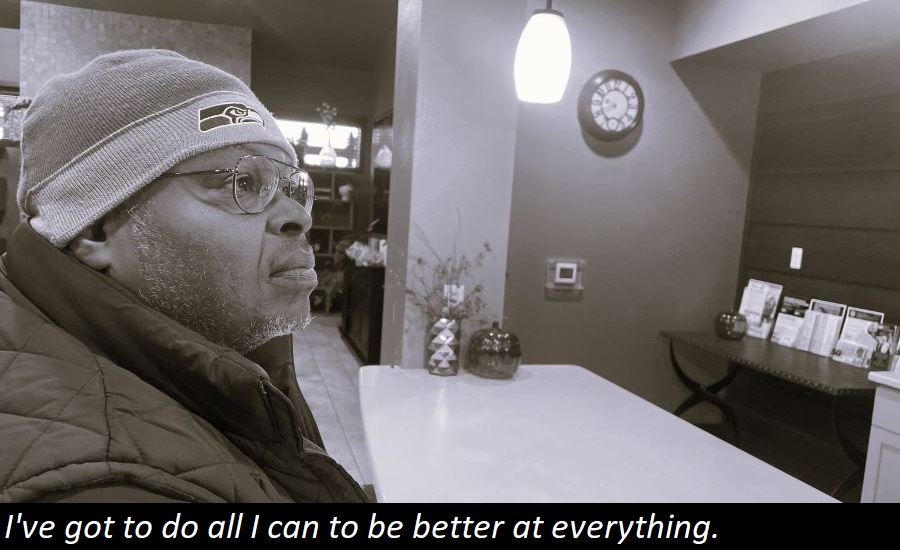
When it comes to homelessness, prevention is a curiously powerful thing. We argue and debate about what should become of those who wander King County’s streets without a home—blaming them, blaming ourselves, blaming the system—until there’s virtually no one left to blame but still plenty of people out wandering without a home.
But there should be no debate about prevention: When we help stave off eviction, we wrap kids in the security that comes with believing that their dad can do just about anything. We help overwhelmed parents face uncertainty, often armed with the old adage, “Courage is fear that has said its prayers.” We move closer to the day when our region’s homelessness problem is less debatable and more manageable—when the number of people already out on the streets doesn’t grow exponentially.
United Way embraces homelessness prevention like a father’s hug. As our area has seen an exponential increase in evictions following the discontinuance of pandemic relief dollars, we believe this is the work we are empowered to do to solve the problem.
And our successes bolster our belief.
- Our Home Base program brought together caseworkers who had access to resources with lawyers providing legal advice, and we also threw in flexible funds to help prevent evictions. When the pandemic hit and eviction moratoriums were in place, we focused mainly on rental assistance.
- United Way took over the county’s emergency rental assistance program in the spring of 2022, and since then, we have served more than 5,000 households and processed more than $50 million in rental assistance. Working with households before they faced eviction, we processed as much as nearly $1 million a week in rental assistance. Eligible households receive up to nine months of back rent and up to three months of future rent.
- This year, we launched Housing Stability Support to bolster our eviction prevention efforts. We’ve partnered with Housing Connector, a Seattle-based organization that provides housing access and resources to individuals and families in need to create a housing stability model complete with client-centered services and flexible financial assistance. The program primarily serves tenants who identify as Black, Indigenous, or other people of color. A majority of these households are headed by single parents with children.
The effectiveness of our rental assistance program convinced United Way to concentrate on preventing people from becoming homeless in the first place—with eviction prevention and rental assistance. While we will continue to play roles in homelessness policy and advocacy, our direct work and work with our partners will focus on prevention.
As a result of these efforts, between April 2019 and June 2023, United Way kept more than 3,000 households facing eviction in their homes via our legal representation coupled with financial assistance.
Behind those figures are families like Washington’s, who boasts a work history that includes a helpdesk analyst for a senior store manager at Nordstrom, a contact representative for the IRS, and a former owner of Bling Things, a novelty company that sold items at concerts and fairs.
Washington came within a hair of a tragedy that would have permanently altered the course of his children’s lives. Once he got back on his feet, he forged ahead. United Way’s Housing Stability Support furnished Washington with a computer to help him craft and distribute his resume and search job sites. Washington landed a job at Catholic Charities, where he helps serve people who are experiencing homelessness. Then his car’s brakes began acting up; Housing Stability Support was able to give him resources to get them fixed too.
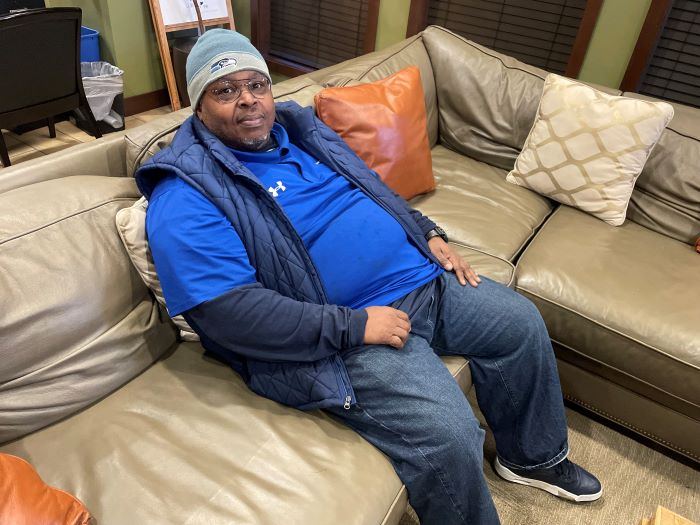
But United Way didn’t stop there; we kept in touch with Washington throughout the process with weekly calls and checkups.
“[Housing Stability Support] helped me tremendously. They were always calling me and asking me how I was doing,” says Washington. “It was a real blessing because I had nobody checking on me. Sometimes as a man, we don’t like to tell people our problems, especially our family members. We just keep it all in.”
Home Base resources helped Washington relieve his back rent before his medical emergency. Afterward, his back rent payment had ballooned again—to the tune of $13,000. Finding work meant he was able to establish a payment plan and had already paid about $2,000 of the back rent when Housing Stability Support stepped in again.
“They told me that they would pay off the entire balance–$11,000,” said Washington. “Now, I’m a month ahead on my rent, trying to stay out as far ahead as I can. Housing Connector has been such a blessing. “And the rental assistance from United Way has been a blessing, too.”
In fact, United Way staff later reached out to Washington to see whether he required more rental assistance.
He took delight in saying that due to all the help he had already received he was opting out of the program. “And then they sent me another message of confirmation asking if I really wanted to opt-out,” Washington says, “And I said, ‘Yes, I’m fine.’”
“That’s where I am today,” Washington says. “I got a little promotion. I work a day shift now instead of the graveyard shift, so I can take that extra pressure off my mom who is taking care of my daughter. I can now afford to put my daughter in daycare. Everything has been going well, and I’m just keeping the faith, working hard, and doing the right stuff.”
“That’s what I try to teach my kids. Never give up and believe in yourself. If you’re always honest and always do the right thing, good things will happen. It’s just karma. It works like that. And even if it doesn’t, you know that you did the right thing. And that’s enough.”

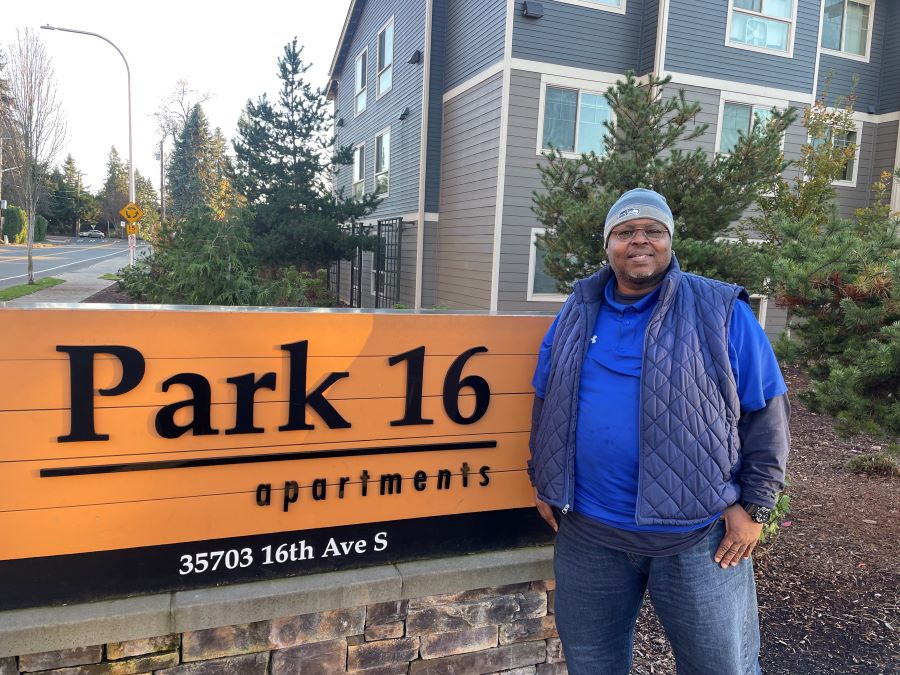
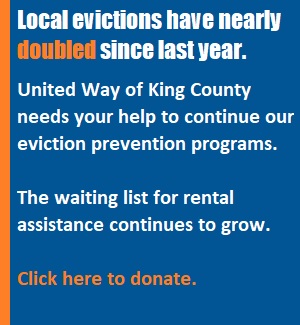

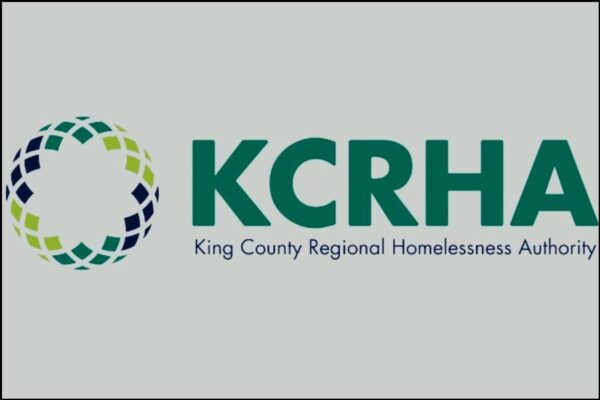

Comments